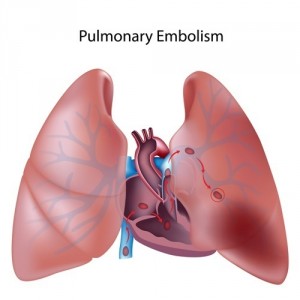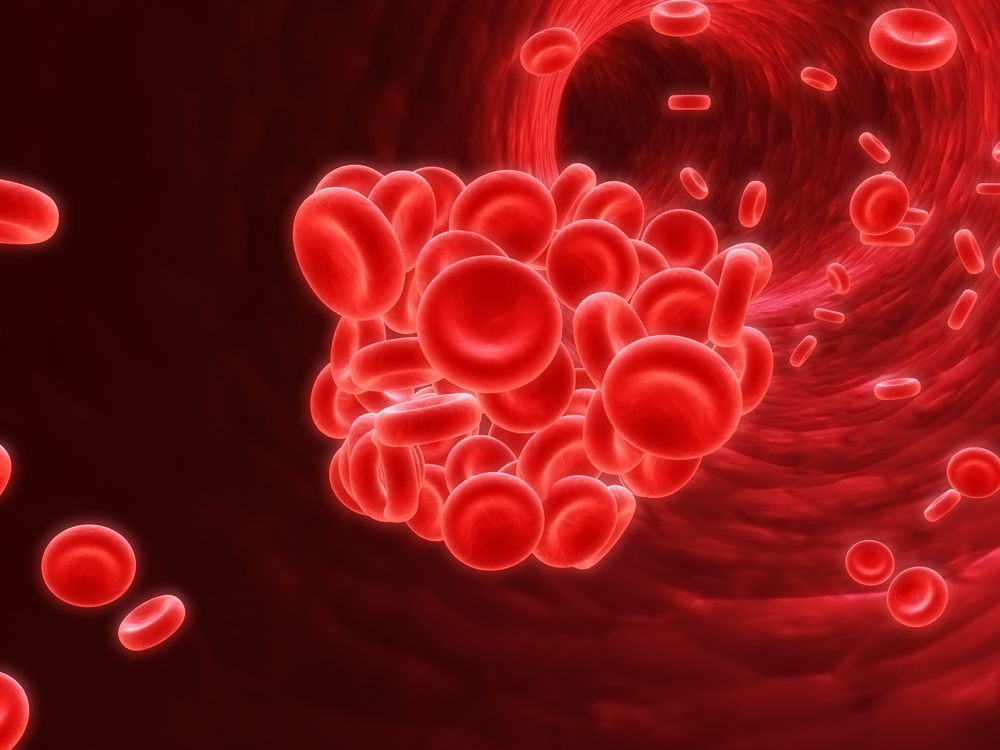 Deep vein thrombosis is characterized by the formation of a blood clot inside a deep vein, generally in the legs, blocking blood-circulation. When the blood clot detaches — embolus — it can travel to the lungs causing a potential life-threatening condition, known as pulmonary embolism.
Deep vein thrombosis is characterized by the formation of a blood clot inside a deep vein, generally in the legs, blocking blood-circulation. When the blood clot detaches — embolus — it can travel to the lungs causing a potential life-threatening condition, known as pulmonary embolism.
The standard treatment for deep vein thrombosis consists of the administration of an anticoagulant to inhibit the formation of new blood clots, however, without affecting the clots already formed. Apixaban (commercialized under the name Eliquis) is an approved anticoagulant for the treatment of deep vein thrombosis. The drug was approved to treat adults with acute deep vein thrombosis or pulmonary embolism, but it was also suggested as a therapeutic to prevent recurrent thrombosis or pulmonary embolism.
Recently, the German Institute for Quality and Efficiency in Health Care (IQWiG) determined the added benefits effect of Apixaban when compared to other comparator therapies for the treatment of these patients. The results were compiled in a third dossier assessment, after two previous dossiers evaluating its effect on hip replacement and atrial fibrillation, in 2012 and 2013, respectively. The dossier was elaborated to assess Apixaban performance in two experimental settings — as an initial therapy, where the authors tested Apixaban (10 mg, twice-a-day, during 7 days, then administered at 5 mg twice-a-day) versus a Vitamin K antagonist, as a comparator therapy (supplemented with heparin during the initial phase of treatment); as a long-term treatment, to prevent recurrent episodes of thrombosis Apixaban was administered as a low-dose treatment (2.5 mg twice daily), and compared with a Vitamin K antagonist. The data supporting both investigational lines of Apixaban added benefit, was delivered by the drug manufacturer only in respect to the initial treatment — data from the AMPLIFY study, a randomized controlled trial, with Apixaban and as a comparator therapy the Enoxaparin (a low molecular weight heparin) with Warfarin (as a vitamin K antagonist) were administered during six months.
[adrotate group=”4″]
The Federal Joint Committee (G-BA) reported their findings as follows:
– Apixaban added effect on “symptomatic non-fatal deep vein thrombosis” they found an added benefit in patients with a body mass index (BMI) higher than 28 kg/m²; lower BMI resulted in no differences with the comparator therapy.
– Apixaban added effect on the outcome “symptomatic non-fatal pulmonary embolism” in patients with a BMI equal or lower than 28 kg/m² was decreased, when compared to the comparator therapy (enoxaparin and warfarin), while in patients with a BMI higher than 28 kg/m² no differences were observed between both therapies.
– No differences between Apixaban and comparator therapy were registered for mortality and adverse reactions.
– The Apixaban added benefit was proved for events of both non-major and major bleeding events, independently of patients BMI.
In conclusion, patients with a BMI of higher than 28 kg/m² treated with Apixaban as an initial therapy for deep vein thrombosis and pulmonary embolism exhibited added benefits when compared to the comparator therapy. The benefits were not proven for an initial treatment of patients with a BMI equal or lower than 28 kg/m² as well as for Apixaban as a long-term treatment for both deep vein thrombosis and pulmonary embolism.

